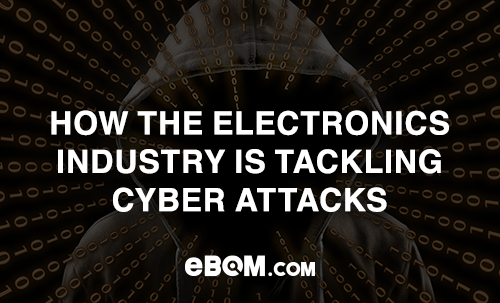Cyber-attacks are an online assault launched by cybercriminals to maliciously disable devices or steal data. Malware covers a broad range of threats, the most common of which include worms, a standalone malware computer programme that is designed to replicate themselves to spread to other computers. Viruses are also a common threat to computers and electronics; they work by any piece of code that can copy itself with the intention of corrupting a computer system and/or destroying data. Spyware is a software that is installed in a user’s computer without their knowledge with the intention of obtaining covert information and transmitting that information to a third party. Lastly, we have trojan horses, a form of malware that is designed to look like legitimate software, usually the most difficult to distinguish.
Many companies take important measures to ensure their organisation is protected from cyber-attacks, which could potentially affect their reputation. According to JJ Electronics, 11% of respondents reported that they insisted on their suppliers providing evidence of their cyber safety defences, whether as part of their supply chain negotiation, contracting or agreement of quality and payment terms. Back in 2018, there was a leak of customer data that led to British Airways being hit with a £183.9m fine, and of course a tarnished reputation. Not only this, around 380,000 login details and payment information were leaked from the cyber-attack. So, as you can imagine, companies take cyber security very seriously.
IoT
Internet of Things does not reply on human intervention to function, instead it collects data and acts on the collected information. IoT creates new opportunities for sensitive information to be compromised, due to data being shared through IoT and other participants, increasing the potential risks of data breach.
What can I do to prevent a cyber-attack?
It is important to follow a regular practice to tighten and secure new routes where cyber-attacks could potentially take place, including keeping software up to date. It is not just management who needs to be aware of potential cyber-attacks, it is necessary to train all staff of potential data breaches. Examples include; checking links before clicking on them, check email addresses from the received email and using common sense before sending sensitive information. Additionally, it is key to have your data backed up to avoid serious downtime, in the event of a cyber-attack.
By Amy Leary, Marketing Manager at eBOM.com










